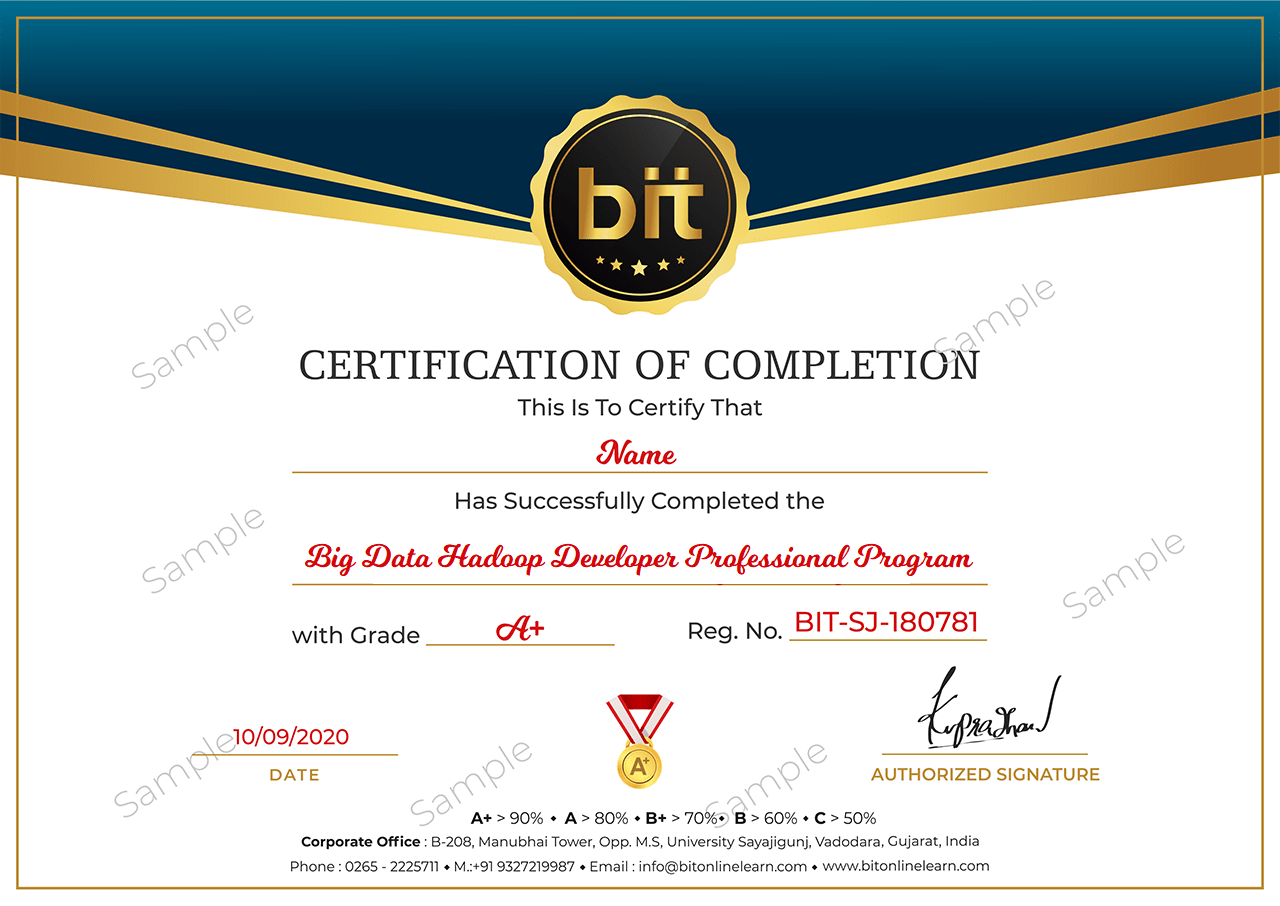· Understanding Big Data
· Types of Big Data
· Big Data Challenges
· Limitations & Solutions of Big Data Architecture
· Hadoop & its Features
· Hadoop Ecosystem
· Different Hadoop Distributions
· Difference between Traditional Data and Big Data
· Hadoop 2.x Core Components Preview
· Hadoop Storage: HDFS (Hadoop Distributed File System)
· Hadoop Processing: MapReduce Framework
· Distributed Data Storage in Hadoop, HDFS and Hbase
· Hadoop Data processing Analyzing Services MapReduce and spark, Hive Pig and Storm
· Data Integration Tools in Hadoop
· Resource Management and cluster management Services
· Practical Exercise









